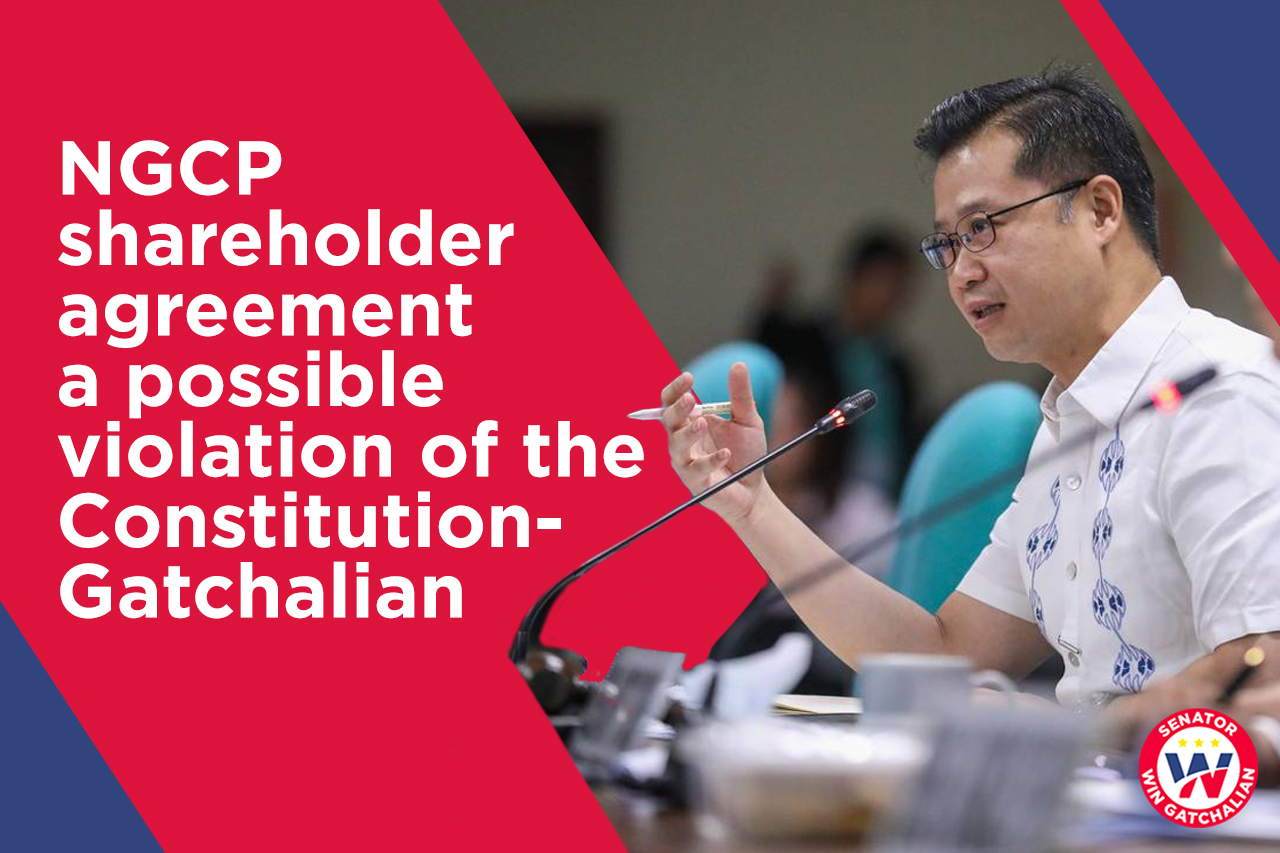A shareholder agreement of the National Grid Corporation of the Philippines (NGCP) that prevents majority shareholders from convening and making emergency decisions unless minority members are present could be violative of the Constitution, said Senator Win Gatchalian, emphasizing a constitutional provision limiting foreign stake in public utilities to 40% is meant to safeguard Filipino interests.

In the case of NGCP, Gatchalian took note that Filipino board members account for a 60% majority stake in the grid public utility while State Grid Corporation of China (SGCC) accounts for a 40% minority stake. However, a board meeting, as per a shareholder agreement, cannot happen if the minority shareholders do not attend. This can only happen for two consecutive times, after which the majority shareholders can proceed with the board meeting despite the absence of the minority.
“This provision effectively tied the hands of the Filipino shareholders. Filipinos should always be in control, management-wise, finance-wise, and in terms of operations. The Constitution is very clear that 60 percent of the capital of public utilities should be owned by Filipinos. This ownership structure allows Filipinos, and not foreigners, to make decisions on the direction, management, and operations of a crucial business imbued with public use and public service. How can Filipinos make a decision if they cannot convene?” asked Gatchalian in a recent Senate hearing, citing Article 12, Section 11 of the Constitution.
“This is a very important safeguard for the Filipinos but we sold ourselves to the devil by foregoing this safeguard. We need to further study this legal issue but, on its face, it seems that the shareholder agreement is a way around the constitutional requirement,” he said. The agreement effectively means that Filipino majority shareholders will not be able to make a decision on their own, especially in cases of emergency, such as those relating to national security, Gatchalian said.
According to NGCP Assistant Corporate Secretary Atty. Dylan Concepcion, the internal agreement is supported by a Supreme Court decision covering public utility companies. Concepcion and his team, however, failed to provide the specific general register number of the high court decision he cited when asked by Gatchalian.
The Senate vice chairperson of the Energy Committee emphasized that the constitutional provision that a utility company should always be majority-owned by Filipinos with at least 60% stake is meant to enable control of the utility by Filipinos to ensure public interest and national security are upheld and protected.


